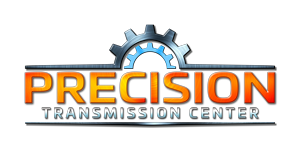Chevrolet Transmission Repair
Chevrolet is one of the largest auto manufacturers and is known for passenger cars, trucks, and SUVs. In recent years Chevrolet has made many changes across all vehicle lines to remain competitive in price, technology, and reliability.
Between 1990 and 2005 most Chevrolet passenger cars had a 4-speed front-wheel drive automatic transmission and trucks/SUVs had a 4-speed rear-wheel-drive automatic transmission. The most common transmissions were designated 4T40E, 4T60E, 4T65E, 4L60E, and 4L80E. Beginning in 2005 Chevrolet began adding new technology that has changed the transmissions significantly across all product lines. Common transmissions in front-wheel-drive passenger vehicles and SUVs are now the 6T40E, 6T70E, and 6T75E. Common transmissions in trucks and large SUVs are the 6L80E and 6L90E. Rather than 4 speeds, these transmissions have 6 speeds to increase fuel economy, performance, and comfort.
In addition to adding more gears, these transmissions have the transmission control module inside the transmission rather than an external stand-alone module or combined with the engine control module in a powertrain control module. This is a very significant change when it comes to diagnosing and replacing electrical components related to the transmission such as solenoids and sensors.
Many manufacturers are moving toward the internal module style that combines the transmission control module, valve body, solenoids, pressure switches, and temperature sensors in one unit.
Ready to Schedule an Appointment?
We'll call you! Leave your information below.
Chevrolet Transmissions
General Motors engineered newer computer-controlled transmissions with the computer in the transmission. Their version of this computer is the TEHCM—Transmission Electro-Hydraulic Control Module. Failure of the TEHCM results in hard or delayed shifting or a complete loss of shifting. The TEHCM can fail due to metal contamination or debris from inside the transmission, sensor/switch malfunction, or solenoid deterioration. Keep in mind these are highly sensitive electronic components exposed to large variations in temperatures and other environmental factors. These computerized components typically last 80,000-120,000 miles but can begin to fail sooner.
If shifting problems start to occur it’s possible the TEHCM is the cause and there may not yet be internal transmission mechanical failure. If properly diagnosed and replaced early enough a new TEHCM may be the only repair needed. All too often, many people ignore the early signs of transmission problems until they become major drivability issues. Once the internal mechanical components become worn or damaged a transmission overhaul or rebuild is required, which significantly increases the cost of repair.
Chevrolet 4×4 Repair
If your Chevrolet car, truck, or SUV shows any of the following symptoms contact Precision Transmission Center or another professional transmission repair facility to schedule a diagnosis. Having the transmission checked by a qualified transmission facility earlier rather than later can save you thousands of dollars. Make sure the facility you choose has factory-trained technicians, modern diagnostic equipment, ATRA/ATSG/ASE/BBB certifications, and experience with late-model Chevrolet vehicles.
Finally, be prepared to pay a diagnostic fee to the shop checking your late model Chevrolet. Qualified shops with the necessary skill and tools to properly diagnose and repair your vehicle have a significant investment in education and equipment. It may be tempting to choose a shop that will diagnose your vehicle for free, but the cost of misdiagnosis and incorrect repairs far outweighs the small up-front cost of the correct diagnosis.
Back to Domestic Auto ShopChevrolet Transmission Repair in Daytona Beach FL
Serving Clients in the Greater Florida Area:
